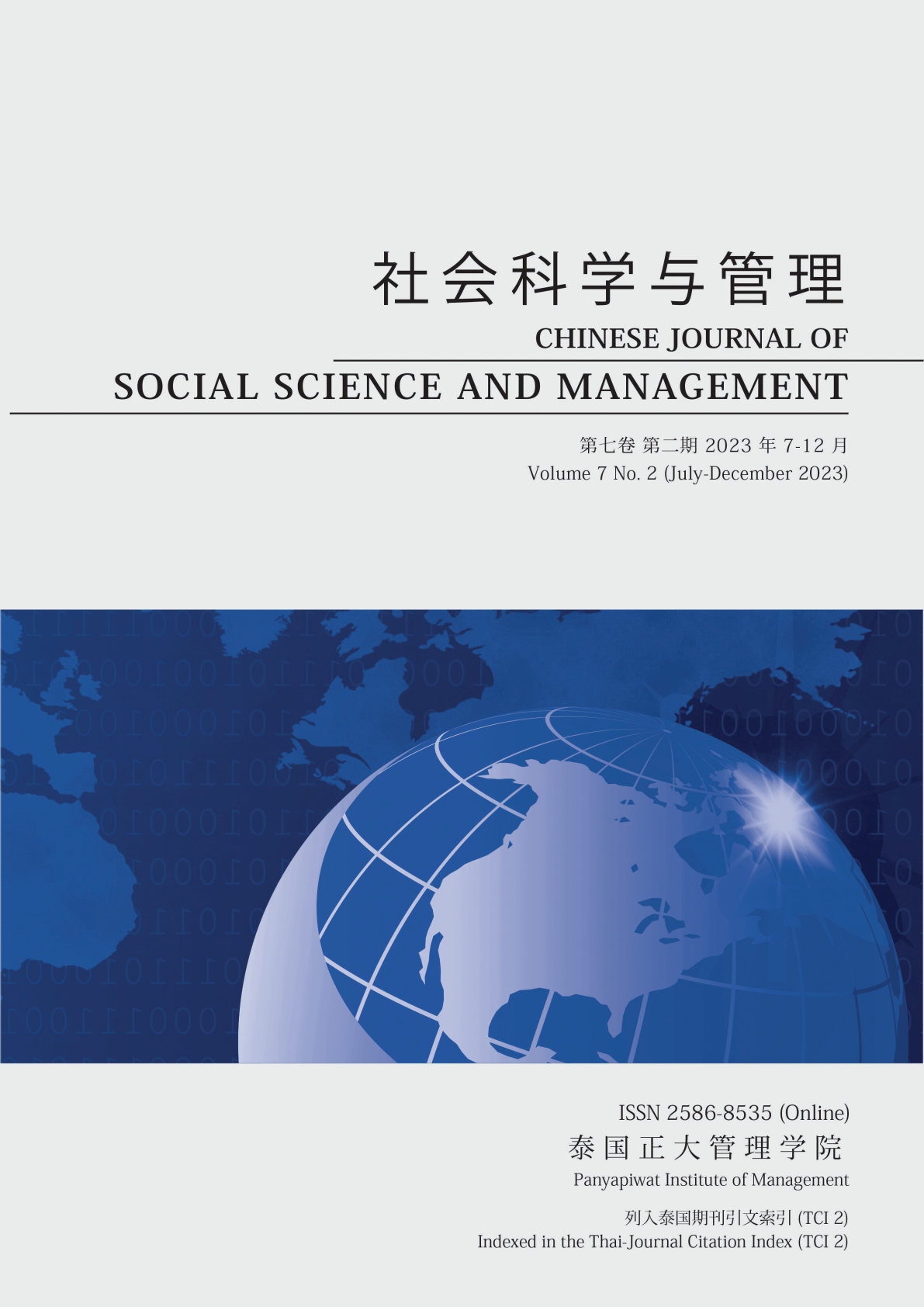THE IMPACT OF KNOWLEDGE HETEROGENEITY OF CONSTRUCTION PROJECT TEAM ON TEAM PERFORMANCE—MEDIATED BY TEAM CONFLICT
Main Article Content
Abstract
In order to explore the relationship between team knowledge heterogeneity, team conflict and team performance in construction projects, based on the theoretical derivation, this paper proposes the research hypothesis, constructs the analysis model, and uses structural equation modeling to verify the relationship between the three areas. It was found that the knowledge heterogeneity of construction project teams is negatively correlated with team performance, the knowledge heterogeneity of construction project teams is positively correlated with task conflict and relationship conflict, relationship conflict plays a negative mediating role between team knowledge heterogeneity and team performance, and task conflict has no mediating effect between team knowledge heterogeneity and team performance. This paper also explores the overall mechanism of the heterogeneity of the explicit and tacit knowledge of team organization within the background of construction projects. Furthermore, it identifies the formation mechanism and law of task conflict risk and relationship conflict risk, reveals the dynamic evolution of task conflict in the operation and evolution process of team organization systems, expands the scope of the application of the theoretical basis of organizational behavior, and enriches the research findings in the field of organizational behavior.
Article Details

This work is licensed under a Creative Commons Attribution-NonCommercial-NoDerivatives 4.0 International License.
Chinese Journal of Social Science and Management Editorial Division
The Office of Research and Development, Panyapiwat Institute of Management
85/1 Moo 2, Chaengwattana Rd., Bang Talat, Pakkred, Nonthaburi 11120, Thailand
Tel. 02 855 01048 E-mail: cjssm@pim.ac.th
References
Bian, F., & Wang, J. T. (2018). Research on the relationship between team conflict and entrepreneurial performance-regulation of cohesion and heterogeneity. Laboratory Research and Exploration, 10(37), 269-276.
Chen, J. C., & Zhao, C. M. (2016). Knowledge heterogeneity and knowledge creation: The mediating role of cognitive conflict. Intelligence Magazine, 4(35), 43-47.
Chen, W., Yang, Z. L., & Lang, Y. F. (2015). An empirical study on the impact of team fracture zone on team effectiveness-the regulation of relational leadership behavior and the intermediary of interactive memory system. Management Review, 4(27), 110-121.
Deng, J. Z., & Wang, C. M. (2008). Research on the reverse effect mechanism of team diversity on knowledge sharing. Scientific Management Research, 6(26), 25-27.
Ding, J. Y., Wang, Z. F., Anumba, C., & Wang, G. D. (2014). Summary of research on construction project delivery mode and project performance. Journal of Civil Engineering, 4(47), 131-144.
Guo, J. L., & Chen, J. (2019). Research on the impact of entrepreneurial team heterogeneity on entrepreneurial enterprise performance-taking team member relationship as the moderating variable. Chinese Forestry Economy, 2(25), 16-20.
Homan, A. C., Knippenberg, D. L., Kleef, G. A., & De Dreu, C. K. W. (2007). Bridging faultlines by valuing diversity: Diversity beliefs, information elaboration, and performance in diverse work groups. Journal of Applied Psychology, 5(92), 1189-1199.
Jackson, S. E., Brett J. F., & Sessa, V. I. (1991). Some differences make a difference: Individual dissimilarity and group heterogeneity as correlates of recruitment, promotions, and turnover. Journal of Applied Psychology, 5(76), 67-85.
Kan, H. S., Le, Y., & Lu, Y. B. (2013). Review on the research of organizational conflict in the field of construction engineering. Journal of Engineering Management, 4(23), 107-111.
Luo, L., Zhu, J. J., & Zhen, J. (2018). Research on family farm management ability system based on synergy theory. Journal of Shandong Agricultural University, 2(23), 31-37.
Mei, Q., & Yu, S. N. (2012). A study on the relationship between top management team heterogeneity, team conflict and entrepreneurial performance-taking conflict management as a moderating variable. Economic Management and Research, 6(20), 92-103.
Qian, X. C., & Quan, L. (2016). Management philosophy. Jiaotong University Press.
Sun, J. H., Zhuang, W. X., & Hu, J. (2020). The influence of tacit knowledge heterogeneity on the creativity of knowledge-based teams-taking knowledge reconstruction as a moderating intermediary variable. Research on Science and Technology Management, 14(31), 174-183.
Wang, X. Y., & Ji, Z. H. (2013). Research on the relationship between knowledge heterogeneity and performance of cross scientific innovation team. Scientific Research Management, 3(34), 14-22.
Wernerfelt, B. (1984). A resource-based view of the firm. Strategic Management Journal, 2(5), 171-180.
Williams, K. Y., & O’ Reilly, C. A. (1998). Demography and diversity in organizations: A review of 40 years of research. Research in Organization Behavior, 20, 77-140.
Wu, Y. (2014). Research on the impact of knowledge heterogeneity of entrepreneurial team on entrepreneurial performance. Scientific Research Management, 7(35), 84-90.
Yu, X. Y., Zhang, Y. M., Chen, Y. Y., & Jia, Y. Y. (2020). Founder turnover rate, executive team heterogeneity and entrepreneurial growth. Management Science, 2(33), 3-16.
Zhao, K. H., Jia, L. D., Chai, Y. H., & Wang, X. Y. (2014). Restraining the negative effects of team relationship conflict: A study of Chinese context. Managing the World, 3(32), 119-130.


